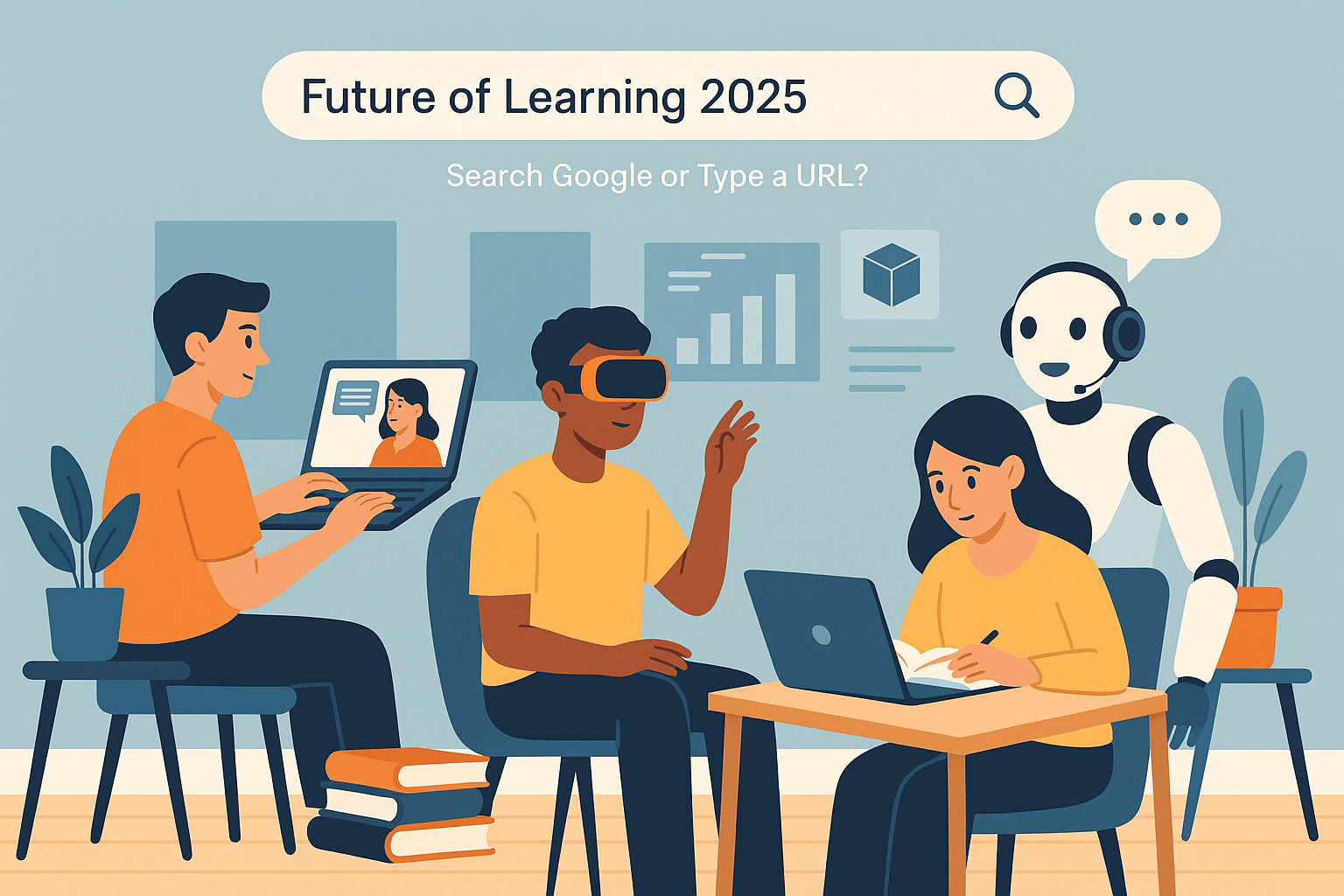Introduction
Education is the foundation of progress. But in 2025, it is not limited to classrooms—it’s everywhere. With online platforms, AI tutors, and skill-based learning, the future of education is more flexible and accessible than ever. Students can now learn at their own pace, while professionals constantly upgrade skills to remain competitive.
Just like people start a query with Search Google or Type a URL? learners now begin their educational journey online—finding resources, tutorials, and mentorship instantly. This article explores the top education trends of 2025, from digital classrooms to lifelong learning.
1. The Shift from Traditional to Digital Learning
-
Classrooms are hybrid – physical + online.
-
E-learning platforms dominate with courses from top universities.
-
Mobile learning allows access anywhere.
-
Gamification makes learning interactive and fun.
2. Online Learning Platforms
In 2025, e-learning is mainstream.
-
Coursera, Udemy, edX provide affordable access.
-
LinkedIn Learning bridges education with careers.
-
Skillshare caters to creatives.
-
Language apps like Duolingo personalize lessons.
3. AI-Powered Education
Artificial intelligence is revolutionizing classrooms.
-
AI tutors personalize lessons.
-
Smart grading systems reduce teacher workload.
-
AI chatbots answer student queries instantly.
-
Adaptive learning apps adjust based on progress.
4. Skill-Based Learning
Degrees matter, but skills define employability.
-
Coding bootcamps produce job-ready developers.
-
Digital marketing certifications open global careers.
-
AI, blockchain, and cybersecurity courses are in demand.
-
Micro-credentials showcase specific expertise.
5. Virtual & Augmented Reality Classrooms
Education is becoming immersive.
-
VR classrooms simulate real-life experiments.
-
AR overlays enhance textbooks with 3D models.
-
Remote labs allow students to practice without being on campus.
6. Global Accessibility of Education
Barriers to learning are falling.
-
Free MOOCs (Massive Open Online Courses).
-
Scholarships for remote learners.
-
Multilingual platforms offering courses in local languages.
-
Offline learning modes for areas with low internet.
7. Mental Health & Student Wellness
The pressure of education is real. In 2025, schools and universities focus more on wellness.
-
Mindfulness apps for students.
-
Counseling via chat platforms.
-
Flexible schedules to reduce burnout.
-
Peer support communities for emotional health.
8. The Role of Teachers in 2025
Teachers are not replaced by technology—they are empowered by it.
-
Focus shifts from content delivery to mentoring.
-
Teachers use AI tools for personalized instruction.
-
Global collaboration among educators.
9. Corporate Learning & Upskilling
Education is lifelong.
-
Companies invest in employee training.
-
Online certifications boost career growth.
-
AI predicts future skill needs.
-
Cross-disciplinary learning is encouraged.
10. Challenges in Modern Education
Even with progress, challenges exist.
-
Screen fatigue among students.
-
Quality inconsistency in online courses.
-
Accessibility gaps in rural areas.
-
Overdependence on AI tools.
11. Future of Education by 2030
By 2030, expect:
-
Fully immersive VR schools.
-
AI mentors guiding career choices.
-
Universal free access to core education.
-
Blended learning as the global norm.
Conclusion
Education in 2025 is more than just studying—it’s about adaptability, accessibility, and lifelong growth. Whether you’re a student preparing for exams, a professional upskilling, or a hobbyist exploring passions, digital education makes it possible.
Just as we rely on Search Google or Type a URL? to navigate the web, we can rely on education technology to navigate our future. The journey of learning has become borderless, personalized, and limitless.

